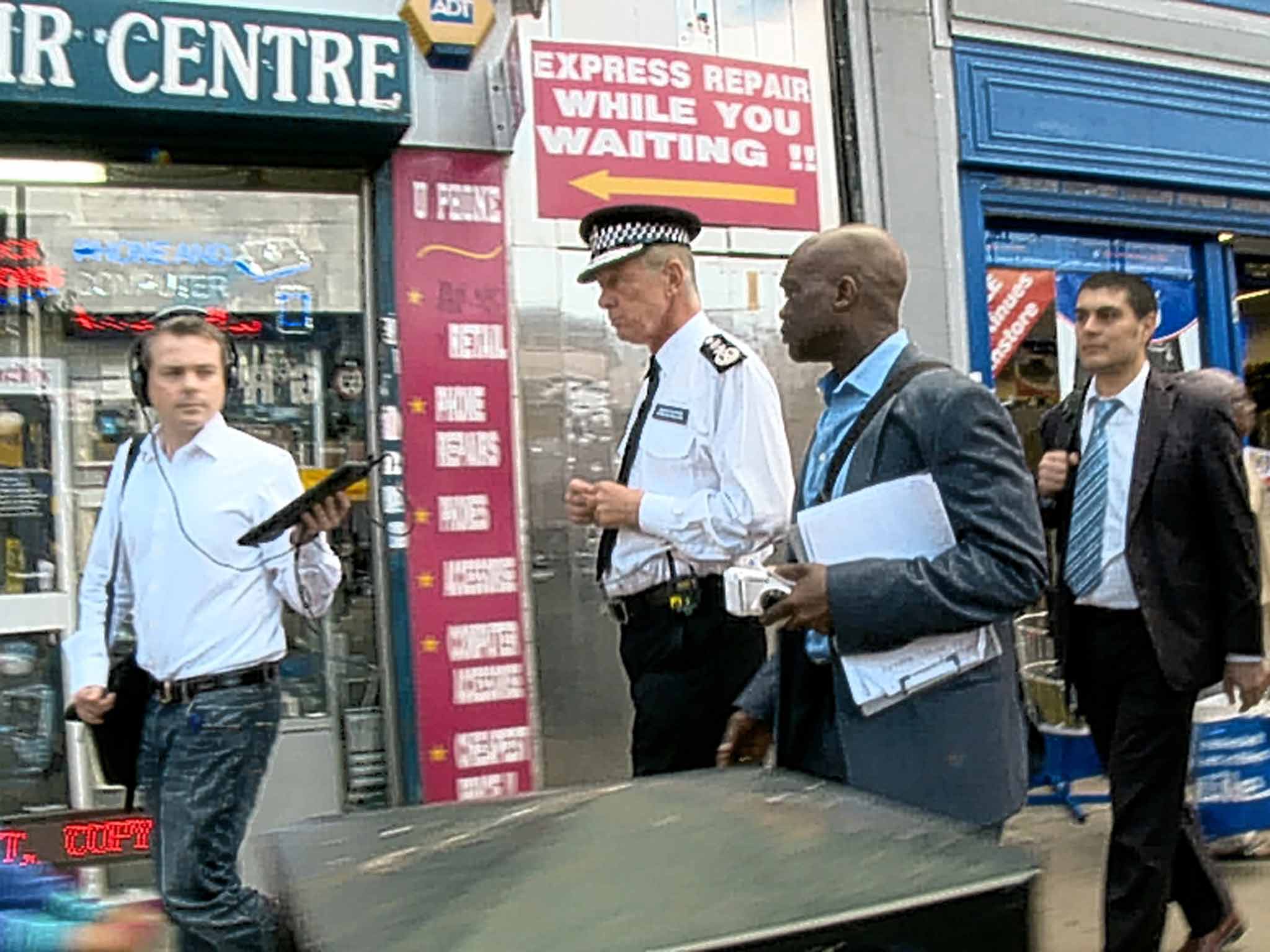The Met, BBC1 - TV review: The outlook appears better for British documentary than for British justice
It may be some time before a Met officer gets to look this heroic in public again

Your support helps us to tell the story
From reproductive rights to climate change to Big Tech, The Independent is on the ground when the story is developing. Whether it's investigating the financials of Elon Musk's pro-Trump PAC or producing our latest documentary, 'The A Word', which shines a light on the American women fighting for reproductive rights, we know how important it is to parse out the facts from the messaging.
At such a critical moment in US history, we need reporters on the ground. Your donation allows us to keep sending journalists to speak to both sides of the story.
The Independent is trusted by Americans across the entire political spectrum. And unlike many other quality news outlets, we choose not to lock Americans out of our reporting and analysis with paywalls. We believe quality journalism should be available to everyone, paid for by those who can afford it.
Your support makes all the difference.In Babylon, Sam Bain and Jesse Armstrong's criminally underrated cop drama from last year, one subplot involves the filming of an all-access documentary about the Metropolitan Police force, commissioned by transparency-obsessed new comms chief, Liz Garvey. Well, here is the real thing: The Met, a five-part series, filmed over the course of a year, revealing the daily operations of Britain's biggest and busiest police force.
Either real-life Met communications chief Martin Fewell is much better at his job than the fictional Liz, or Met Commissioner Bernard Hogan-Howe is just a very lucky man, because the episode opened with a convenient opportunity for him to shine. The Guv'nor was on a walkabout-cum-photo opportunity on Tottenham High Road, when a breathless cabbie interrupted the journalist's questions to report a robbery. Hogan-Howe sprung into action, tracked down the culprit and personally made an arrest. That was an opportunity well seized. It may be some time before a Met officer gets to look that heroic in public again.
In January 2014, London was awaiting a verdict from the inquest into the death of Mark Duggan, the 29-year-old who was shot and killed by police officers in 2011, precipitating the riots. News reports at the time documented the angry reaction outside Tottenham Police Station when the "lawful killing" verdict came in, but it was interesting to note that even the Met's top brass, filmed here as they holed up in a meeting room, appeared completely baffled by the jury's decision.
The rest of the film helped to put all this in a wider context. We met Andy, a firearms officer in Hackney, who responded to a call about a man with a gun and ended up confiscating only a pair of gardening sheers. We witnessed Haringey Borough Commander Victor Olisa's seemingly single-handed struggle to represent racial diversity and we saw the policing strategy for street festival Brixton Splash, which involved arresting people in anticipation of crimes they'd yet to commit. The officer in charge considered this a success, but it wasn't entirely clear how they were distinguishing between "suspected gang member" and "any young black man in a hoodie".
Are the police making any real headway against institutional racism? Judging by The Met, the outlook is better for British documentary than it is for British justice.
Join our commenting forum
Join thought-provoking conversations, follow other Independent readers and see their replies
Comments